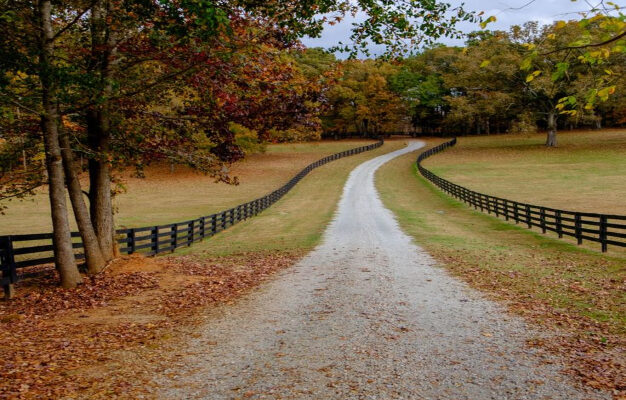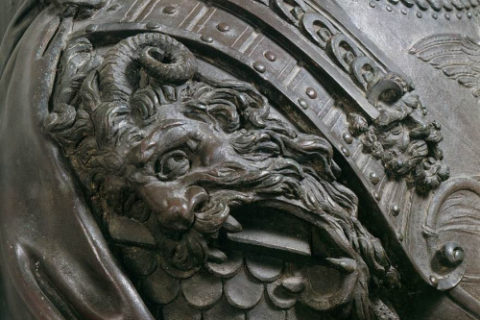Not to be all doom and gloom here, but some of you need to hear this.
The 1950s to the 2000s were probably the best years our generations in the United States are going to get until the cycle of collapse repeats.
We already hit the top back then. It’s all downhill from there.
There is hope in the distant future. But we must go through many trials first.
Our fiscal situation is unsustainable, we’re being completely overrun by the Brown Legion, leftists have taken over everything, and our unipolarity conditions are rapidly dwindling. That’s the short list. I don’t need to write the full list; you already know it.
We don’t have long.
Which means, even given this current degenerative condition, we should appreciate what we still do have while we still have it.
I’m not saying to not be upset about what was stolen from us, but to cherish what remains.
For the most part, our cities aren’t unvisitable from constant diversity riots (yet). The lights are still on. We have running water and food. Things aren’t so bad, really. But they will not stay like this.
We all recognize the foundational crack. We just don’t know when it will give.
You know this as well as I do.
I harp on you all about getting prepared incessantly. I still strongly believe that you should make steps in that direction, if you have not. But part of that preparation is to enjoy these good times while you still can.
Wouldn’t it have been nice to have enjoyed that sub-$1 gas for long road trips around a majority White nation-state, like in the old days before the Immigration Act of 1965?
Wouldn’t it have been nice to travel around the world with no TSA and minimal costs, like in the old days before the Patriot Act?
The older generations should have taken advantage of both. Hell, we should too, even given the TSA and the prices because there may come a day where we cannot fly or drive at all due to the environmental nutjobs.
All I’m saying is that the decline is a long road down. We’ve already hit and passed the good times peak, but we’re still perched near the top. But once this crash really gets rolling, we drop like a rollercoaster. So, enjoy the things here at the top while you can, so you don’t regret it one day.
Get outside. Take a personal day, or even a week, and shut off the news and just enjoy all you’ve been graced with. Go buy that steak dinner feast for your family, even though it’s way too expensive. Your kids might not get that chance again. Make a full day out of just enjoying God’s gifts to you and your surroundings, through whatever those personal pleasures may be.
Because you never know how much longer you’ll have the things you take for granted right now.
Don’t get caught in the prepper trap of always spending every day focused on the end or on continual decline. That day will come, but there is no sense in worrying about it or not living today for fear of tomorrow.
Take a day. So that when the country does implode on itself, you have some happy days to harken and reminisce on. To solidify cheerful stories of a time long since passed that we can hand down to future generations, inspiring hope within them.

A Christian, husband, father, and American dissident. Join him in seeking truth and sipping sweet tea during the collapse of the American Empire. You can find more of his work at hiddendominion.com. Eph. 5:11.






I think in many ways yearning for a lost America is what drives people to watch Andy Taylor and Mayberry reruns. Our people dance in the shadows of Vesuvius oblivious to its distant rumbles. We have outsourced our industry and insourced our professional and technical labor. We operative on a fiat money system and insistence of open borders and free trade global capitalism with its national interdependence requirement. It is time to get off the USS Titanic before she drags us to the bottom or conversely gets us vaporized in a nuclear change with Russia over Ukraine. The unipolar world and the dollar as the reserve currency of the world is coming to an end! Here is wisdom: anything you cannot leave voluntarily is either a toxic relationship, a criminal enterprise, a psychotic cult, or a tyrannical government!
Heresy on steroids… and meth. Sad or funny? There’s a dummy on every corner.
https://www.youtube.com/watch?v=p2_p_qwIyZ4
Tom Hill was in the saddle
One bright November morn,
The echoing glades of Guiting Wood
Where ringing with his horn.
The diamonds of the hoar-frost
Were sparkling in the sun,
Upon the falling leaves the drops
Were shining one by one.
The hare lay on the fallow,
The robin caroled free;
The linnet and the yellow finch
Twittered from tree to tree.
In stately march the sable rook
Followed the clanking plough;
Apart their watchful sentinel
Cawed from the topmost bough.
Peeped from her hole the field-mouse
Amid the fallen leaves;
From twig to twig the spider
Her filmy cable weaves.
The wavings of the pine boughs
The squirrel’s from disclosure;
And through the purple beech-tops
The whirring pheasant rose.
The startled rabbit scuttered
Across the grassy ride;
High in mid-air the hovering hawk
Wheeled round in circles wide.
The freshest wind was blowing
O’er groves of beech and oak,
And through the boughs of larch and pine
The struggling sunbeam broke.
The varied tints of autumn
Still lingered on the wood,
And on the leaves the morning sun
Poured out a golden flood.
Soft, fleecy clouds were sailing
Across the vault of blue;
A fairer hunting morning
No huntsman ever knew.
All nature seemed rejoicing
That glorious morn to see;
All seemed to breathe a fresher life –
Beast, insect, bird, and tree.
But sounds and sight of beauty
Fell dull on eye and ear;
The huntsman’s heart was heavy
His brow oppresses with care.
High in his stirrups raised he stood,
And long he gazed around;
And breathlessly and anxiously
He listened for a sound.
But nought he heard save song of bird,
Or jay’s discordant cry;
Or when among the tree-tops
The wind went murmuring by.
No voice of hound, no sound of horn;
The woods around were mute,
As though the earth had swallowed up
His comrades-man and brute.
The thought, ‘I must essay to find
My hounds at any cost;
A huntsman who has lost his hounds
Is but a huntsman lost.’
The round he turned his horse’s head,
And shook his bridle free,
When he was struck by an aged fox
That sat beneath a tree.
He raised his eyes in glad surprise,
That huntsman keen and bold;
But there was in that fox’s look
That made his blood run cold.
He raised his hand to touch his horn,
And shout a ‘Tally-ho!’
But, mastered by that fox’s eye,
His lips refused to blow,
For he was grim and gaunt of limb,
With age all silvered o’er;
He might have been an Artic fox
Escaped from Greenland’s shore.
But age his vigor had not tamed,
Not dimm’d his sparkling eye,
Which shone with an unearthly fire –
A fire could never die.
And thus the huntsman he addressed,
In tones distinct and clear,
Who heard as they who in a dream
The fairies’ music hear.
‘Huntsman,’ he saida sudden thrill
Through all the listener ran,
To hear a creature of the wood
Speak like a Christian man
‘Last of my race, to me ‘tis given
The future to unfold,
To speak the words which never yet
Spake fox of mortal mould.
‘Then print my words upon your heart,
And stamp them on your brain,
That you to others may impart
My prophecy again.
‘Strong life is yours in manhood’s prime,
Your cheek with heat is red;
Time has not laid his finger yet
In earnest on your head.
‘But ere your limbs are bent with age,
And ere your locks are grey,
The sport that you have loved so well
Shall long have passed away.
In vain shall generous Colmore
Your hunt consent to keep;
In vain the Rendcombe baronet
With gold your stores shall heap.
In vain Sir Alexander,
And Watson Keen in vain,
O’er the pleasant Cotswold hills
The joyous sport maintain.
‘Vain all their efforts: spite of all,
Draws nigh the fatal morn,
When the last Cotswold fox shall hear
The latest huntsman’s horn.
‘Yet think not, huntsman, I rejoice
To see the end so near;
Nor think the sound of horn and hound
To me a sound of fear.
‘In my strong youth, which numbers now
Full many a winter back,
How scornfully I shook my brush
Before the Berkeley pack.
‘How oft from Painswick Hill I’ve seen
The morning mist uncurl,
When Harry Airis blew the horn
Before the wrathful Earl.
‘How oft I’ve heard the Cotswolds’ cry
As Turner cheered the pack,
And laughed to see his baffled hounds
Hang vainly on my track.
‘Then think not that I speak in fear,
Or prophesy in hate;
Too well I know the doom reserved
For all my tribe by fate.
‘Too well I know, by wisdom taught
The existence of my race
O’er all wide England’s green domain
Is bound up with Chase.
‘Better in early youth and strength
The race for life to run,
Than poisoned like the noxious rat,
Or slain by felon gun.
‘Better by wily sleight and turn
The eager hound to foil,
Thank slaughtered by each baser churl
Who yet shall till the soil.
‘For not upon these hills alone
The doom of sport shall fall;
O’er the broad face of England creeps
The shadow on the wall.
‘The years roll on: old manors change,
Old customs lose their sway;
New fashions rule; the grandsire’s garb
Moves ridicule to-day.
‘The woodlands where my race has bred
Unto the axe shall yield;
Hedgerow and copse shall cease to shade
The ever-widening field.
‘The manly sports of England
Shall vanish on by one;
The manly blood of England
In weaker veins shall run.
‘The furzy down, the moorland heath,
The steam plough shall invade;
Nor park nor manor shall escape
Common, nor forest glade.
‘Degenerate sons of manlier sires
To lower joys shall fall;
The faithless lore of Germany,
The guilded vice of Gaul.
‘The sports of their forefathers
To baser tastes shall yield;
The vices of the town displace
The pleasures of the field.
‘For swiftly o’er the level shore
The waves of progress ride;
The ancient landmarks one by one
Shall sink beneath the tide.
‘Time honoured creeds and ancient faith,
The Altar and the Crown,
Lordship’s hereditary right,
Before that tide go down.
‘Base churls shall mock the mighty names
Writ on the roll of time;
Religion shall be held a jest,
And loyalty a crime.
‘No word of prayer, no hymn of praise
Sound in the village school;
The people’s education
Utilitarians rule.
‘In England’s ancient pulpits
Lay orators shall preach
New creeds, and free religions
Self made apostles teach.
‘The peasants to their daily tasks
In surly silence fall;
No kindly hospitalities
In farmhouse or in hall.
‘Nor harvest feast nor Christmas tide
Shall farm or manor hold;
Science alone can plenty give,
The only god is Gold.
“The homes where love and peace should dwell.
Fierce politics shall vex.
And unsexed woman strive to prove
Herself the coarser sex.
‘Mechanics in their workshop
Affairs of State decide;
Honour and truth old fashioned words
The noisy mobs deride.
‘The statesmen that should rule the realm
Coarse demagogues displace;
The glory of a thousand years
Shall end in foul disgrace.
The honour of old England,
Cotton shall buy and sell,
And hardware manufacturers
Cry “Peace! lo! All is well.”
Trade shall be held the only good,
And gain the sole device;
The statesman’s maxim shall be peace,
And peace at any price.
“Her army and her navy
Britain shall cast aside;
Soldiers and ships are costly things,
Defence an empty pride.
The German and the Muscovite
Shall rule the narrow seas;
Old England’s flag shall cease to float
In triumph on the breeze
The footstep of the invader
Then England’s shore shall know,
While homebred traitors give the hand
To England’s every foe.
‘Disarmed, before the foreigner,
The knee shall humbly bend,
And yield the treasures that she lacked
The wisdom to defend.
‘But not for aye-yet once again,
When purged by fire and sword,
The land her freedom shall regain,
To manlier thoughts restored.
“Taught wisdom by disaster,
England shall learn to know
That trade is not the only gain
Heaven gives to man below.
‘The greed for gold departed,
The golden calf cast down,
Old England’s sons again shall raise
The Altar and the Crown.
“Rejoicing seas shall welcome
Their mistress once again;
Again the banner of St. George
Shall rule upon the main.
“The blood of the invader
Her pastures shall manure;
His bones unburied on her fields
For monuments endure.
‘Again in hall and homestead
Shall joy and peace be seen,
And smiling children raise again
The maypole on the green.
‘Again the hospitable board
Shall groan with Christmas cheer,
And mutual service bind again
The peasant and the peer.
“Again the smiling hedgerow
Shall field from field divide;
Again among the woodlands
The scarlet troop shall ride.’
Again it seemed that aged fox
More prophecies would say,
When sudden came upon a wind,
‘Hark forrard! Gone away!’
The listener started from his trance
He sat there all alone;
That well-known cry had burst the spell,
The aged fox was gone.
The huntsman turned. He spurred his steed,
And to the cry he sped;
And, when he thought upon that fox,
Said naught, but shook his head.
Cheltenham, 1871
Publishers Note
It is our privilege to publish The Fox’s Prophecy and to bring this little poem before American sportsmen for the first time.
The original manuscript by an anonymous author was found among some old Church papers by the Rev. Whatley, Vicar of Aston Ingham parish in the county of Gloucestershire. It was given by him to the late William Gordon Canning, Esq about 1889 while the latter was Master of the Ledbury Hounds. Where as the author of the poem is unknown, the end of the manuscript bore the words “Cheltenham, 1871”. In 1914 Mr. Canning published The Fox’s Prophesy in an edition of 250 copies, The proceeds derived from the sale being given to various War Charities.
In 1930 another edition of several hundred copies was published by members of the family to which he duke of Beaufort contributed a foreword. The proceeds from this later edition were devoted to the Gloucester Royal Infirmary in memory of William Gordon Cunning, who died in 1929.
The various people mentioned in the poem existed in real life and were living at the time the poem was written, being connected with either the Berkeley or Cotswold Hunt, sic Mr. Cregoe Colmore was Master of the Cotswold, 1858-1871; Harry Airis was huntsman to the Berkeley, F.W. Fitzhardinge, Bart being the M.F.H. and the “wrathful Earl”.
We are indebted to the late Mr. Canning’s brother, Walter Gordon Canning, Esq of Hartpury, Gloucestershire for the information contained in this Publisher’s note.
As the Duke of Beaufort states in his Foreword in the 1930 edition “many of the views offered by the old Berkeley fox have become curiously and prophetically true.”
M.E.S.
The Sporting Gallery & Bookshop, Inc. ©1939
New York
Send submissions via art@genesisny.net
Tom Hill was in the saddle
One bright November morn,
The echoing glades of Guiting Wood
Where ringing with his horn.
The diamonds of the hoar-frost
Were sparkling in the sun,
Upon the falling leaves the drops
Were shining one by one.
The hare lay on the fallow,
The robin caroled free;
The linnet and the yellow finch
Twittered from tree to tree.
In stately march the sable rook
Followed the clanking plough;
Apart their watchful sentinel
Cawed from the topmost bough.
Peeped from her hole the field-mouse
Amid the fallen leaves;
From twig to twig the spider
Her filmy cable weaves.
The wavings of the pine boughs
The squirrel’s from disclosure;
And through the purple beech-tops
The whirring pheasant rose.
The startled rabbit scuttered
Across the grassy ride;
High in mid-air the hovering hawk
Wheeled round in circles wide.
The freshest wind was blowing
O’er groves of beech and oak,
And through the boughs of larch and pine
The struggling sunbeam broke.
The varied tints of autumn
Still lingered on the wood,
And on the leaves the morning sun
Poured out a golden flood.
Soft, fleecy clouds were sailing
Across the vault of blue;
A fairer hunting morning
No huntsman ever knew.
All nature seemed rejoicing
That glorious morn to see;
All seemed to breathe a fresher life –
Beast, insect, bird, and tree.
But sounds and sight of beauty
Fell dull on eye and ear;
The huntsman’s heart was heavy
His brow oppresses with care.
High in his stirrups raised he stood,
And long he gazed around;
And breathlessly and anxiously
He listened for a sound.
But nought he heard save song of bird,
Or jay’s discordant cry;
Or when among the tree-tops
The wind went murmuring by.
No voice of hound, no sound of horn;
The woods around were mute,
As though the earth had swallowed up
His comrades-man and brute.
The thought, ‘I must essay to find
My hounds at any cost;
A huntsman who has lost his hounds
Is but a huntsman lost.’
The round he turned his horse’s head,
And shook his bridle free,
When he was struck by an aged fox
That sat beneath a tree.
He raised his eyes in glad surprise,
That huntsman keen and bold;
But there was in that fox’s look
That made his blood run cold.
He raised his hand to touch his horn,
And shout a ‘Tally-ho!’
But, mastered by that fox’s eye,
His lips refused to blow,
For he was grim and gaunt of limb,
With age all silvered o’er;
He might have been an Artic fox
Escaped from Greenland’s shore.
But age his vigor had not tamed,
Not dimm’d his sparkling eye,
Which shone with an unearthly fire –
A fire could never die.
And thus the huntsman he addressed,
In tones distinct and clear,
Who heard as they who in a dream
The fairies’ music hear.
‘Huntsman,’ he saida sudden thrill
Through all the listener ran,
To hear a creature of the wood
Speak like a Christian man
‘Last of my race, to me ‘tis given
The future to unfold,
To speak the words which never yet
Spake fox of mortal mould.
‘Then print my words upon your heart,
And stamp them on your brain,
That you to others may impart
My prophecy again.
‘Strong life is yours in manhood’s prime,
Your cheek with heat is red;
Time has not laid his finger yet
In earnest on your head.
‘But ere your limbs are bent with age,
And ere your locks are grey,
The sport that you have loved so well
Shall long have passed away.
In vain shall generous Colmore
Your hunt consent to keep;
In vain the Rendcombe baronet
With gold your stores shall heap.
In vain Sir Alexander,
And Watson Keen in vain,
O’er the pleasant Cotswold hills
The joyous sport maintain.
‘Vain all their efforts: spite of all,
Draws nigh the fatal morn,
When the last Cotswold fox shall hear
The latest huntsman’s horn.
‘Yet think not, huntsman, I rejoice
To see the end so near;
Nor think the sound of horn and hound
To me a sound of fear.
‘In my strong youth, which numbers now
Full many a winter back,
How scornfully I shook my brush
Before the Berkeley pack.
‘How oft from Painswick Hill I’ve seen
The morning mist uncurl,
When Harry Airis blew the horn
Before the wrathful Earl.
‘How oft I’ve heard the Cotswolds’ cry
As Turner cheered the pack,
And laughed to see his baffled hounds
Hang vainly on my track.
‘Then think not that I speak in fear,
Or prophesy in hate;
Too well I know the doom reserved
For all my tribe by fate.
‘Too well I know, by wisdom taught
The existence of my race
O’er all wide England’s green domain
Is bound up with Chase.
‘Better in early youth and strength
The race for life to run,
Than poisoned like the noxious rat,
Or slain by felon gun.
‘Better by wily sleight and turn
The eager hound to foil,
Thank slaughtered by each baser churl
Who yet shall till the soil.
‘For not upon these hills alone
The doom of sport shall fall;
O’er the broad face of England creeps
The shadow on the wall.
‘The years roll on: old manors change,
Old customs lose their sway;
New fashions rule; the grandsire’s garb
Moves ridicule to-day.
‘The woodlands where my race has bred
Unto the axe shall yield;
Hedgerow and copse shall cease to shade
The ever-widening field.
‘The manly sports of England
Shall vanish on by one;
The manly blood of England
In weaker veins shall run.
‘The furzy down, the moorland heath,
The steam plough shall invade;
Nor park nor manor shall escape
Common, nor forest glade.
‘Degenerate sons of manlier sires
To lower joys shall fall;
The faithless lore of Germany,
The guilded vice of Gaul.
‘The sports of their forefathers
To baser tastes shall yield;
The vices of the town displace
The pleasures of the field.
‘For swiftly o’er the level shore
The waves of progress ride;
The ancient landmarks one by one
Shall sink beneath the tide.
‘Time honoured creeds and ancient faith,
The Altar and the Crown,
Lordship’s hereditary right,
Before that tide go down.
‘Base churls shall mock the mighty names
Writ on the roll of time;
Religion shall be held a jest,
And loyalty a crime.
‘No word of prayer, no hymn of praise
Sound in the village school;
The people’s education
Utilitarians rule.
‘In England’s ancient pulpits
Lay orators shall preach
New creeds, and free religions
Self made apostles teach.
‘The peasants to their daily tasks
In surly silence fall;
No kindly hospitalities
In farmhouse or in hall.
‘Nor harvest feast nor Christmas tide
Shall farm or manor hold;
Science alone can plenty give,
The only god is Gold.
“The homes where love and peace should dwell.
Fierce politics shall vex.
And unsexed woman strive to prove
Herself the coarser sex.
‘Mechanics in their workshop
Affairs of State decide;
Honour and truth old fashioned words
The noisy mobs deride.
‘The statesmen that should rule the realm
Coarse demagogues displace;
The glory of a thousand years
Shall end in foul disgrace.
The honour of old England,
Cotton shall buy and sell,
And hardware manufacturers
Cry “Peace! lo! All is well.”
Trade shall be held the only good,
And gain the sole device;
The statesman’s maxim shall be peace,
And peace at any price.
“Her army and her navy
Britain shall cast aside;
Soldiers and ships are costly things,
Defence an empty pride.
The German and the Muscovite
Shall rule the narrow seas;
Old England’s flag shall cease to float
In triumph on the breeze
The footstep of the invader
Then England’s shore shall know,
While homebred traitors give the hand
To England’s every foe.
‘Disarmed, before the foreigner,
The knee shall humbly bend,
And yield the treasures that she lacked
The wisdom to defend.
‘But not for aye-yet once again,
When purged by fire and sword,
The land her freedom shall regain,
To manlier thoughts restored.
“Taught wisdom by disaster,
England shall learn to know
That trade is not the only gain
Heaven gives to man below.
‘The greed for gold departed,
The golden calf cast down,
Old England’s sons again shall raise
The Altar and the Crown.
“Rejoicing seas shall welcome
Their mistress once again;
Again the banner of St. George
Shall rule upon the main.
“The blood of the invader
Her pastures shall manure;
His bones unburied on her fields
For monuments endure.
‘Again in hall and homestead
Shall joy and peace be seen,
And smiling children raise again
The maypole on the green.
‘Again the hospitable board
Shall groan with Christmas cheer,
And mutual service bind again
The peasant and the peer.
“Again the smiling hedgerow
Shall field from field divide;
Again among the woodlands
The scarlet troop shall ride.’
Again it seemed that aged fox
More prophecies would say,
When sudden came upon a wind,
‘Hark forrard! Gone away!’
The listener started from his trance
He sat there all alone;
That well-known cry had burst the spell,
The aged fox was gone.
The huntsman turned. He spurred his steed,
And to the cry he sped;
And, when he thought upon that fox,
Said naught, but shook his head.
Cheltenham, 1871
Publishers Note
It is our privilege to publish The Fox’s Prophecy and to bring this little poem before American sportsmen for the first time.
The original manuscript by an anonymous author was found among some old Church papers by the Rev. Whatley, Vicar of Aston Ingham parish in the county of Gloucestershire. It was given by him to the late William Gordon Canning, Esq about 1889 while the latter was Master of the Ledbury Hounds. Where as the author of the poem is unknown, the end of the manuscript bore the words “Cheltenham, 1871”.
Ecclesiastes 3:22
King James Version
22 Wherefore I perceive that there is nothing better, than that a man should rejoice in his own works; for that is his portion: for who shall bring him to see what shall be after him?